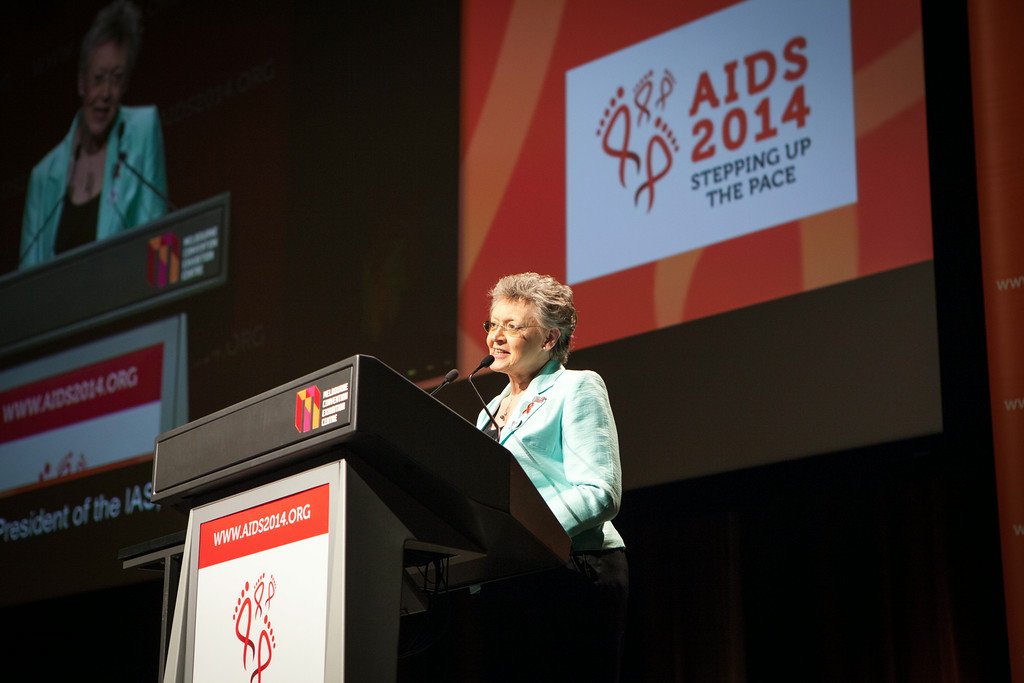
Prof Françoise Barré-Sinoussi, outgoing president of International AIDS Society and co-chair of AIDS 2014
Singapore: AIDS 2014, 20th International AIDS Conference concluded in Melbourne, Australia calling on governments and organisations to step up the pace in terms of delivering universal access to treatment, care and prevention, not only for HIV but for other health issues as well.
At the event's closing ceremony, Prof Françoise Barré-Sinoussi, the outgoing president of International AIDS Society (IAS) and co-chair of AIDS 2014, said,"I strongly believe that we must further increase our collaboration with other major international health movements because our objective is to build a better future for all. This is what global health is about. The mobilization against AIDS is also a strong driver to advance other areas such as human rights. There will be no end of AIDS without ensuring respect and dignity of all people, equity in access to health services and social justice."
Prof Sharon Lewin, local co-chair of the conference also called for increased support and cooperation. "This week, we have heard of all the great progress but that there is still much work to be done. In order for us to change an epidemic to low level infection, we need an individualised approach to address key hot spots; we need a strong focus on specific geographic areas and key affected populations that continue to experience the highest numbers of infections. We need to recognise that one size will not fit all in our response. Now more than ever we need an increase in funding to do it. Now is not the time to slacken the pace."
Sir Bob Geldof, poverty activist, said, "I am dismayed that you people, after such great scientific and global health success, still have to beg for cash. On this last mile, on this last hurdle, we cannot allow indifference and incapable governance to stop the final victory, which is coming."
Mr Chris Beyer, incoming IAS president said that two of the biggest challenges facing the global HIV response were the lack of access to effective treatments for people for millions around the world, and a new wave of discriminatory laws and policies which are excluding people from treatment and care.
The next International AIDS Conference will take place in Durban in South Africa in 2016.
AIDS 2014 brought together 13,600 delegates from over 200 countries to discuss the global HIV response. Former US President Bill Clinton, Sir Bob Geldof, UNAIDS head Michel Sidibé and other international figures joined delegates from the medical, research, government and advocacy sectors as well as representatives from the communities most affected by HIV and AIDS including men who have sex with men, transgender people, sex workers and people who use drugs.




